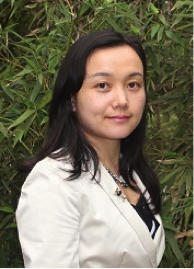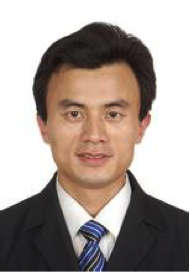



|
Soonhyang Kim, Ph.D. Assistant Professor TESOL Program Coordinator University of North Florida, USA Soonhyang Kim, Ph.D., is Assistant Professor of TESOL at University of North Florida, Jacksonville, Florida, U.S.A. Her recent research interests are pre-/in-service teacher preparation, second and bilingual language/literacy development, academic oral classroom discourse, non-native, English-speaking teacher issue; and online teacher education. Her research-based articles in peer-reviewed journals appear in The Modern Language Journal, English for Specific Purposes, Journal of Praxis in Multicultural Education, International Journal of TESOL and Learning, International Journal of Education and Culture, Journal of Excellence in College Teaching, Asian EFL Journal, etc. She is chair of the Non-Native, English-Speaking Teacher Interest Section (NNEST IS) and former chair of Higher Education Interest Section at International TESOL. |
|
TOPIC Promoting Active Oral Participation by International Students Oral classroom participation is significant to academic enculturation in many disciplines in U.S. higher education. This presentation, based on several relevant studies of her own, report non-native, English-speaking (NNES) international students’ challenges in U.S. university content classrooms regarding oral participation and then demonstrate some strategies instructors and students themselves can use to promote international students succeed in appropriate oral participation. This presentation is beneficial for all NNES students who take classes in English or plan to study abroad in English-speaking countries. This also serves for ESL and content-area university instructors who are teaching international students who appear to be passive in class. |

|
Yingliang Liu, Ph.D. Associate Professor School of Foreign Languages Wuhan University of Technology, China Dr. Yingliang Liu is currently an associate professor of English in the School of Foreign Languages at Wuhan University of Technology (Wuhan, Hubei Province, China). She teaches academic reading and writing to undergraduate and graduate students in the English Department. After earning her Ph.D in Second Language Acquisition and Teaching from the University of Arizona (Tucson, Arizona) in 2009, she worked as an assistant professor of English for Academic Purposes at Georgia Gwinnett College (Lawrenceville, Georgia) until 2012, teaching ESL students. Dr. Liu’s research interests include second language writing and reading, nonnative speaking teachers, and interlanguage pragmatics. She is the associate editor of International Journal of TESOL and Learning and has published books and articles in peer-reviewed journals. |
|
TOPIC Empirical Research on College English Writing in China: A Meta-analysis The speaker will present a typical college English curriculum for non-majors in China, with a focus on the writing component. It is guided by a nationally unified syllabus (released by the Ministry of Education in 2007) and a standardized examination system (College English Test, Band 4 and Band 6). A meta-analysis of the empirical research on college English writing in China from 2005 to 2015 will be provided, comparing subjects, methodologies, and major findings. The review has found that existing empirical studies are mostly descriptive in nature. Chinese teacher-researchers have focused primarily on the error analysis, vocabulary use, corrective feedback, test-driven pedagogies, and negative transfer from L1 to L2 writing. Although many publications have introduced recent Western writing pedagogies, such as multiple-drafting activities and computer-assisted writing activities, the empirical research on such practices is inadequate, suggesting the limited extent to which such practices are actually applied in classroom teaching. Alternative methodologies are proposed to address this research-practice divide. More action research, case studies, and longitudinal research should be encouraged to examine the applicability of new pedagogies and to study individual teachers, students and contexts. |

|
Jiguang Zhao, M.A. English Teacher Baita High School Jiangsu Province, China Jiguang Zhao (M.A.) is an English teacher at Baita High School in Jiangsu Province and a research fellow of National Basic Foreign Language Teaching Research Center in China. He was selected as the “Outstanding Individual of Basic Education Curriculum Reform” by Jiangsu Provincial Department of Education in 2009 and then sent to Queensland University of Technology in Australia for further education on TESOL. He was the recipient of the first prize of High School English Teacher Teaching Competition in Jiangsu Province in 2011. He was awarded the “Model Teacher in Yangtze River Delta Region” in 2013. He was selected as the “National Outstanding Teacher” by the Ministry of Education in China in 2012 and then sent to Canada for further training. He has published over 50 research articles in such key journals as Curriculum, Teaching Materials and Method published by People’s Education Press; Foreign Language Teaching in Schools published by Beijing Normal University; and English Teaching & Research Notes published by East-China University. He is also leading several research projects funded by Jiangsu Provincial Education Department. |
|
TOPIC ESOL Teaching for Mental Development: A Requisite Value to ESOL Learning and Teaching The new round of the ESOL curriculum reform in the 21st century in China has stepped into the period of connotative development, with its core ideas promoting teachers’ teaching beliefs from the center of “language teaching” to the “language education” oriented, which is specifically proposed in the New Standard English Curriculum (The Ministry of Education in China, 2003). The New Standard regards the students’ progress as the key aim of language teaching, which advocates understanding cultural differences and strengthening their character based on language learning. In the view of Mental English Teaching, language learning is not only learning a communication tool but also reflections of one’s ideal, logic and cultural attainments. Mental English Teaching undergoes four stages: symbol recognition, rule application, culture dissemination and mentality convergence, under which the teacher arrange to renovate teaching models, develop curriculum materials and explore micro-teaching skills around the learners’ mental development. |